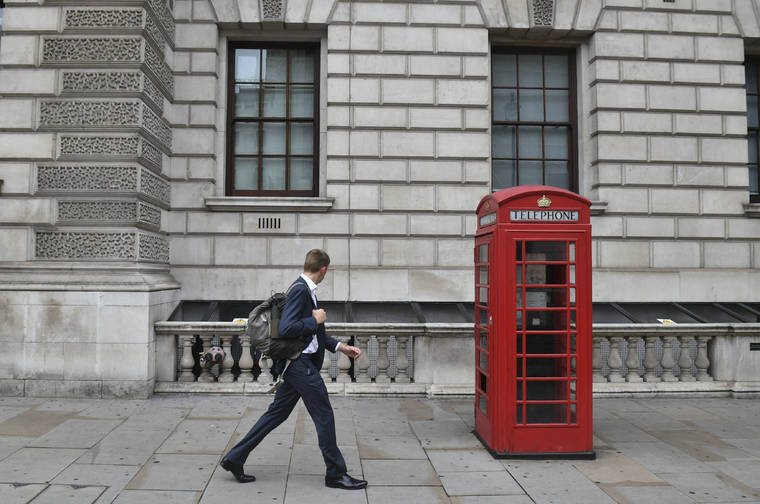LONDON — Around 100 million discounted meals were eaten by British diners during August as part of a government drive to encourage nervous customers back to restaurants.
Figures published Friday by the Treasury department show that the so-called “Eat Out to Help Out” scheme for August cost more than envisioned. It is set to cost a lot more as participating eateries have until the end of September to make claims.
Under the program, sitting customers could receive a 50% discount on food and non-alcoholic drinks at participating restaurants between Monday and Wednesday up to 10 pounds ($13) per person. Food outlets from Michelin-starred outlets to international burger chains then get the discount reimbursed by the government within five days.
Critics say the scheme was short-term gimmick by the government to court public favor following a series of missteps on the coronavirus front and merely shifted dining habits from the end of the week to the start. Many say the scheme did not change the underlying dynamics facing the industry, as summer turns to winter and people will be largely forced to eat indoors, which is more conducive to spreading the virus.
Lorenzo Nargi, co-director of three Lorenzo Italian restaurants in southeast London, said the scheme was not good for structure of the business and that customers had fallen sharply on non-discounted days.
“All this has done is messed us about,” he said. “It ultimately stripped revenue from other days.”
By the end of August, the cutoff point, the government said the scheme had cost it 522 million pounds ($680 million), 22 million pounds more than estimated.
Citing figures from the online reservation company, Open Table, it said early-week business in August was up by more than 50% from the year before. That’s a sharp contrast to July, when restrictions were eased and restaurant bookings were down 54% on average from Mondays to Wednesdays.
For Aug. 31, it said bookings were up 216% from the same day in 2019.
Treasury chief Rishi Sunak said the scheme helped protect the jobs of 1.8 million people working in the hospitality sector and boosted the country’s economic recovery from the coronavirus-recession, which saw economic output in Britain shrink by around 20%.
“From the get-go, our mission has been to protect jobs, and to do this we needed to be creative, brave and try things that no government has ever done before,” he said.
Restaurants and other food outlets such as pubs were only allowed to reopen on July 4, more than three months after they were closed as part of lockdown measures to fight the spread of coronavirus. Britain has Europe’s highest death toll in the pandemic at over 41,600 people.
David Page, chairman of Fulham Shore, which owns The Real Greek chain, said the scheme “immediately” increased customer numbers by over 50%, enabling it to get staff back to work.
“In fact, we are now creating new jobs, by hiring and training more people as fast as we can,” he said.
———
Follow AP coverage of the virus outbreak at https://apnews.com/VirusOutbreak and https://apnews.com/UnderstandingtheOutbreak


